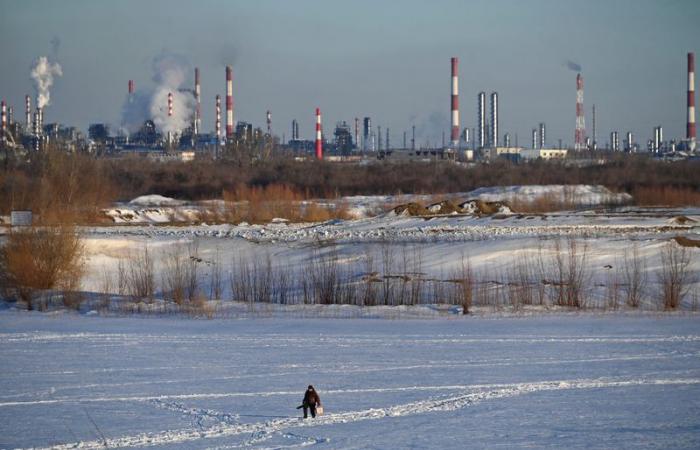At least three Russian refineries have had to halt processing or reduce production due to heavy losses from export restrictions, rising crude prices and high borrowing costs, according to five industry sources.
The closures highlight the difficulties of the Russian refining industry, which has been caught in the crosshairs of Ukrainian drone attacks, Western sanctions against Russia, which force refiners to sell fuel at a discount, as well as rates high interest.
The five sources who work at companies that operate the refineries and are familiar with the refineries’ finances said that all three plants – Tuapse, Ilsky and Novoshakhtinsky – have suspended or reduced operations in recent months.
This development has not been previously reported.
Ilsky and Novoshakhtinsky did not respond to requests for comment.
The crisis is reducing fuel exports and business revenues, reducing liquidity in the state budget, while inflation is high and uncertainties weigh on energy markets, already worried about sluggish demand.
Refiners around the world have reaped record profits in 2021 and 2022 thanks to increased travel demand after the pandemic and a recovery in economic activity.
However, margins then fell sharply as gigantic new factories opened around the world and demand growth slowed, partly due to efforts to transition away from fossil fuels.
LOW-TECH FACTORIES ARE MOST AFFECTED
Russia’s less sophisticated refineries, which do not produce premium fuels, have been hardest hit, posting losses of up to 10,000 rubles ($102) per metric ton for several months in the second half of 2024, according to two sources.
Some more complex refineries also operated at a loss, while others were able to post modest profits thanks to strong sales of light fuels, the sources said.
Russia has 30 large and medium-sized refineries, not including several smaller plants, capable of processing 5.5 million barrels per day (bpd), making it one of the world’s largest fuel exporters.
Russia exports around 2 million bpd of petroleum products and consumes the rest domestically.
Russia’s largest oil company, state-owned Rosneft, has had to repeatedly suspend refining at its vast but relatively unsophisticated Tuapse plant on the Black Sea due to low margins this year, officials said. indicated the sources.
Rosneft did not respond to a request for comment. Other major Russian oil companies – Surgutneftegaz, Gazpromneft, Lukoil – also did not respond.
The small independent refineries Ilsky and Novoshakhtinsky in southern Russia have been operating for several months at half their nominal capacity, processing some 70,000 and 60,000 barrels per day respectively due to low margins, according to four sources. the industry.
All three refineries were hit by Ukrainian drones earlier this year, contributing to low production, the sources added.
Independent refiners are having to rack up debt because they cannot count on the support of larger parent companies, the sources said.
Russia’s central bank raised interest rates from 19% to 21% last month, the highest level since the early years of President Vladimir Putin’s rule, making it even more difficult for many factories to survive, sources say. .
Another problem is the rising cost of crude, which traded at 50,000 rubles per tonne on the Russian domestic market in October, while an independent refiner must reach a maximum price of 35,000 rubles per tonne to make profits, according to sources.
Crude prices in the Russian domestic market have increased due to the weakening of the ruble against the rising US dollar.
Meanwhile, diesel prices in Europe fell almost 60% in August from a year earlier, further reducing refiners’ profits.
Some small private refineries, including the Novoshakhtinsky and Ilsky plants, have asked the government for help, including in the form of additional subsidies, the sources said.
The Russian energy ministry declined to comment.
“We expect the actual (factory) closures to take place early next year,” one of the five sources said.
(1 $ = 97,9500 roubles)






